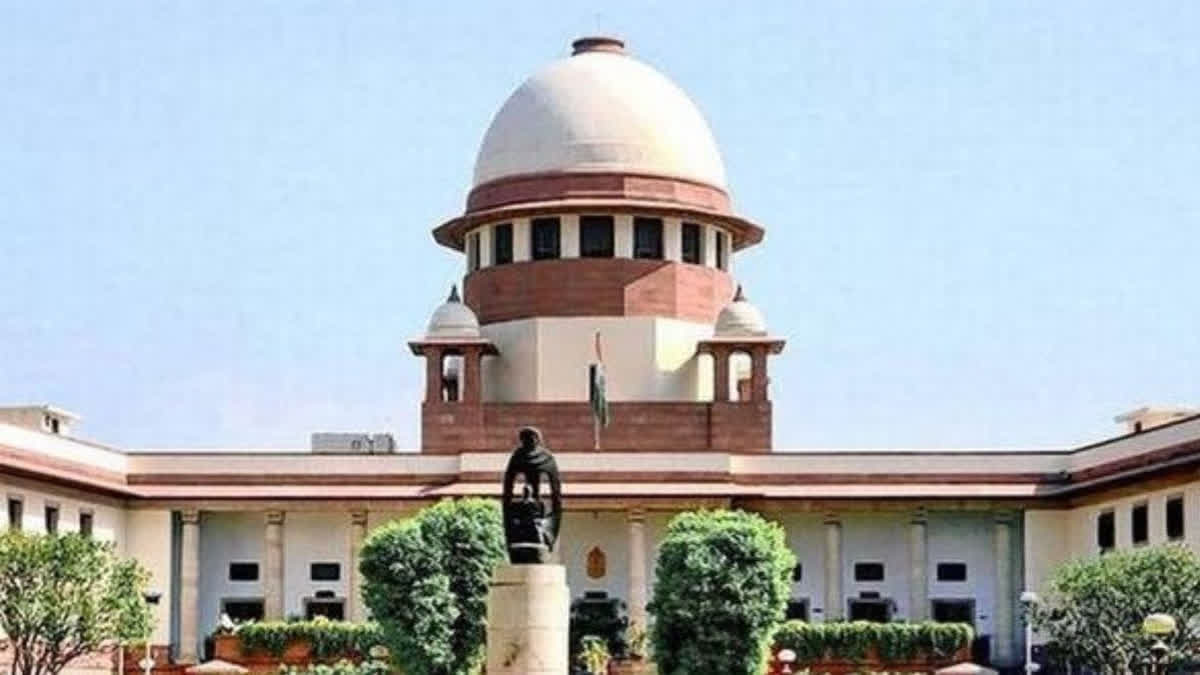New Delhi: The Supreme Court has junked a Public Interest Litigation (PIL) questioning the Union Cabinet's decision of September 15, 2021, providing huge relief to telecom companies in connection with the adjusted gross revenue (AGR), over Rs one lakh crore, saying Cabinet decisions could not be lightly interfered with by a court of law in the absence of there being any particulars or materials brought to the notice of the Court assailing the Cabinet decisions, as being unconstitutional or arbitrary in nature or contrary to law.
A bench comprising Justices BV Nagarathna and Ujjal Bhuyan said, “These are all matters of policy and decision-making which is on the basis of experts’ opinion and on emerging situations and exigencies, to be made in the interest of the welfare of the people of India having serious technical and financial implications and, therefore, have to be in the public interest”.
The bench, in an order passed on September 1, said, "We do not think such Cabinet decisions could be lightly interfered with by a Court of law in the absence of there being any particulars or materials brought to the notice of the Court assailing the Cabinet decisions, as being unconstitutional or arbitrary in nature or contrary to law”.
The top court made it clear that any interference by the court at this stage would not only create uncertainty in the implementation of the policy but also jeopardise the policy itself. The apex court had earlier passed certain orders on September 1, 2020, on recovery of AGR. The bench said it would not be justified on our part to interfere with a well-calibrated decision of the Cabinet solely on the ground that this court had earlier passed certain orders on September 1, 2020.
The bench said in the backdrop of the COVID-19 challenges, with a huge surge in data consumption, online education, work from home, inter-personal connection through social media, virtual meetings, etc., reform measures were found necessary to boost the proliferation and penetration of broadband and telecom connectivity.
The bench said it may appear at first blush that the Cabinet decision to initiate structural and procedural reforms and provide relief measures for the TSPs (telecom service providers) is contrary to the directions issued by this court on September 1, 2020. It would have been more appropriate for the Centre to have filed an application in this regard, said the bench.
The top court said amid the pandemic people depended heavily on the telecom sector and particularly on the TSPs in order to keep in touch with one another as there were lockdowns declared in the country in March 2020 and for successive periods thereafter, in several places owing to the COVID-19 pandemic which necessitated what may be called “social distancing” and as a result there was “distant socialising”.
The bench said in order to provide competition and consumer choice for inclusive development and bring the marginalised areas into the mainstream and universal broadband access to connect the unconnected, nine structural reforms and five procedural reforms plus relief measures for the telecom service providers were provided.
The apex court made these observations while junking a petition filed by Anshul Gupta seeking implementation of the Supreme Court's judgement of September 1, 2020. The petitioner argued that the Cabinet decision is in favour of the ‘super rich’ and to benefit certain entities, and "the decision taken by the Union Cabinet vis-a-vis the telecom sector is an instance of clear interference in the payment schedule decided by this Court and is directly benefiting the Annual Gross Revenue defaulters”.
The bench noted that on September 15, 2021, the Cabinet of the Union of India approved certain structural and procedural reforms in the telecom sector with a view to protect and generate employment opportunities, promote healthy competition, protect the interests of consumers, infuse liquidity, encourage investment and reduce the regulatory burden on Telecom Service Providers (TSPs).
“These reforms were in the backdrop of the outstanding performance of the telecom sector in meeting the COVID-19 pandemic challenges and the reforms were to boost the proliferation and penetration of broadband and telecom connectivity”, it noted.



